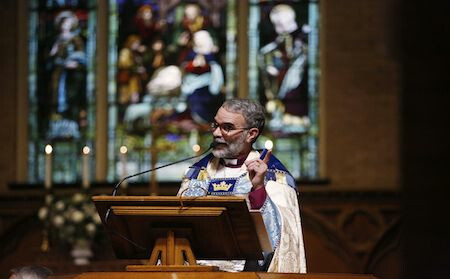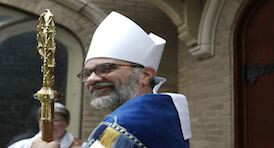Behold the Lamb of God

When I was a parish priest, I concluded that two themes in sermon always met with comprehension and satisfaction, regardless of the relative merits or lack thereof in the sermon as a whole: “God loves you as you are” and “in rest and quietness is our strength.” This says something about us, who suffer from deficient self-esteem and distraction. Both themes are genuinely related to the Christian tradition, in the first grace and the second contemplation. And in each case more needs to be said: grace is God’s work that calls then for a response from us, and contemplation is really about adoration of the One contemplated, and not the outcome it produces in our state of mind, blood pressure, etc.
In light of all this, we can readily admit that we are hardly ready, upon entering Church, to begin worship. The liturgy recognizes this by adding a number of items, which are the equivalent of a pre-game warm-up: the hymn, the Collect for purity (and in Morning Prayer the confession and the Venite). We need a lot of calming down and focusing (I address here, first of all myself, especially as one with a tad of ADD). In this age of sensory bombardment and frenzied pace, our nervous systems alone could use some gearing down before lifting up our prayers.
So I have been thinking recently about the tradition of Taize. It was an ecumenical movement that began among Reformed Christians in France in the wreckage of post- WW II France. Soon it drew a continuing stream of young people from throughout the world. Its worship is simple, repetitive, adorational, rich with candles, chants, icons, interspersed with silence. I think it is just the medicina animi for our time.
One theme of Nativitytide is beholding the Christ-child: the shepherds, the angels, the wise men do just this, and John the Baptist exhorts to do just this in John 1. I hope that we will, this season and increasingly at all times, include this wordless wondering of beholding of the Word made flesh in our own spiritual lives. It is a timeless calling most apt for our time.
Peace,
+GRS




